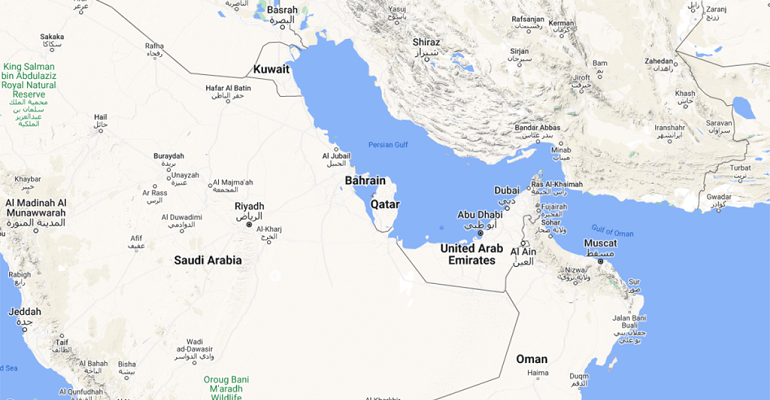Aids to Navigation, or AtoNs, are a critical part of any maritime navigation system. They provide essential information to seafarers regarding the location, route, and configuration of obstacles and hazards.
And nowhere is their role more vital than in the Middle East Gulf – one of the busiest trade lanes in the world.
However, the safety afforded by having these AtoNs in place is under threat if we don’t act now to secure the future of Aids to Navigation in this area.
The Middle East Navigation Aids Service (MENAS) owns and maintains an extensive network of buoys, lighthouses and racons, mostly located in remote areas more than 12 nautical miles from the shore, and generally in hazardous areas such as narrow waterways leading to main ports in the Middle East Gulf region. It’s a service it has been providing to all seafarers since 1951 through its collection of Navigational Light Dues, or Nav Dues as they are more widely known, paid by shipowners relative to their net tonnage on their vessels’ first port of entry into the Gulf.
MENAS is an organisation which covers its operating costs without making any profit. However, over the past two years, the cost of providing MENAS Nav Aids has risen sharply, compounded by the need to replace some major equipment such as DGPS transmitters.
Which is why MENAS has had to look at ways to increase the funding for these vital aids.
We have worked very hard to keep the tariff at the same rate since 2006 but feel we now have no option but to increase the charge. Left unchanged, the income we receive would not be enough to fund the service sufficiently and even though MENAS undertakes contract work for third parties as a way of helping to reduce Nav Dues to shipowners, all services provided by MENAS are paid for by these dues.
Although it may, understandably, be a bitter pill for some shipowners to swallow, we need to implement the tariff charge to ensure the safe navigation of vessels in the Gulf. The new tariff will be effective from 1st October 2023, with the extra funds this increase generates covering MENAS’ operating and capital expenditure costs and any surplus being invested in the renewal of equipment in the coming years.
We have also, reluctantly, been forced to look at the scope of who we collect Nav Dues from and, from 1st October, we will be widening the group of shipowners who will pay. In recent years, MENAS has witnessed a trend of using smaller vessels, which currently do not pay dues, and some of these frequent users have quite significant fleets. It is only fair to all in the global shipping community that these should now contribute towards the services that MENAS provides.
We will be asking all owners/charterers of vessels above or equal to 8,000 net tonnes, making their first port call in the Middle Eastern Gulf, to pay Nav Dues.
We hope that owners, vessels and their masters will understand the important role these Nav Aids play in ensuring safe passage of vessels and understand the need to support their long term, reliable operation. They are paying for a vital service which is critical for safe transit of these complex Gulf waters with the Aids to Navigation provided by MENAS reducing the risk for this area in accordance with SOLAS Chapter V provisions.
We know that reputable shipowners will be committed to good safety standards and trust they will understand the reasons for these changes. Without them, we cannot guarantee a sustainable future of MENAS’ service in the Middle East Gulf.
Copyright © 2024. All rights reserved. Seatrade, a trading name of Informa Markets (UK) Limited.
Add Seatrade Maritime News to your Google News feed.  |

